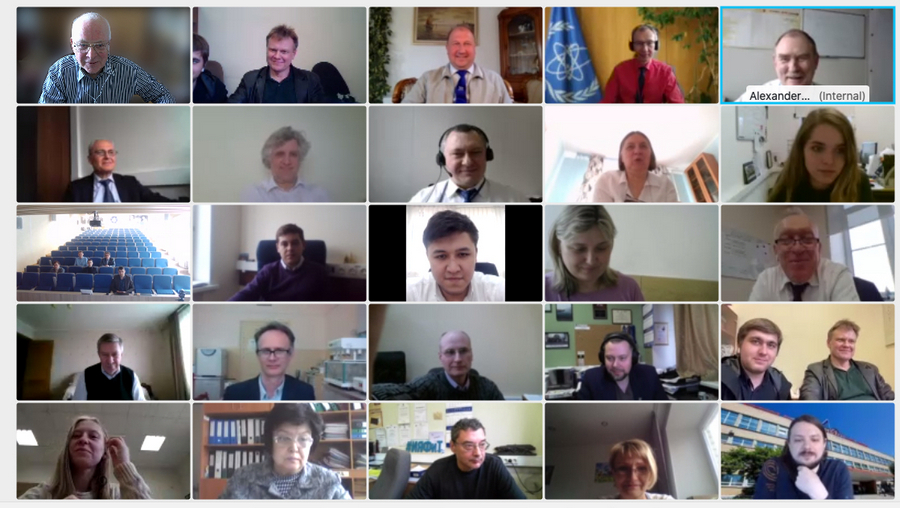To meet the world’s present and future needs for clean and reliable energy, skilled professionals are needed to ensure the sustainable development of nuclear power. The International Project on Innovative Nuclear Reactors and Fuel Cycles (INPRO) help to meet 21st century global energy needs: INPRO’s activities are centred on the key concepts of global nuclear energy sustainability and the development of long-range nuclear energy strategies.
An INPRO course last month, organized by the IAEA jointly with the Regional Network for Education and Training in Nuclear Technology (STAR‑NET), focused on “training the trainers” with 30 participants from universities and nuclear organizations in five countries of Eastern Europe and Central Asia. They learned about INPRO methods for strategically planning for the long-term development of nuclear energy systems, including economics, infrastructure, waste management, environment, proliferation resistance and safety.
“It is crucial that knowledge of the IAEA’s methodology and tools to assess the sustainability of nuclear energy not be lost, but rather are effectively imparted to young professionals and future leaders in the field,” said Mikhail Chudakov, IAEA Deputy Director General and Head of Department of Nuclear Energy. “In this regard, INPRO is forward-looking, equipping the next generation with the necessary education and training.”
The course was held 26-30 April 2021 and was addressed the role of low carbon nuclear power in climate change mitigation while providing an overview of advanced reactor technologies as well as the status of the nuclear fuel cycle and national approaches to it. The leading IAEA experts and expert from STAR-NET universities discussed a variety of topics in such areas as economics, infrastructure, waste management, environment, proliferation resistance, reactors and fuel cycle safety. For example, Georgy Tikhomirov presented overview of international initiatives on data for modelling innovative nuclear reactors, Vladimir Kharitonov discussed long-term trends in energy resource depletion and nuclear power prospects and Andrei Andrianov demonstrated basic principle simulators of nuclear energy systems for education and training. A number of interesting presentations were provided by the Rosatom Technical Academy.

“The school allowed, albeit in a short period of time, to obtain extensive information on the recent achievements of the INPRO project and demonstrated that nuclear power has great potential in decarbonizing energy systems,” said Tamara Segeda, the Dean of D. Serikbayev East Kazakhstan Technical University. “The event held by the IAEA together with the regional network STAR-NET is undoubtedly useful for participants from all countries, including Kazakhstan.”
“We learned not only about basic concepts, the modelling of nuclear energy systems and INPRO methodology, but also about the various possibilities of nuclear energy, the prospects for its development, and traditional and innovative types of nuclear reactors, which was very useful,” said Andrei Burov, senior lecturer at the Belarusian National Technical University (BNTU).
IAEA education and training programmes help prepare the next generation of professionals to manage complex nuclear power programmes. These efforts include transferring knowledge and experience accumulated by international experts and scientists in over two decades of INPRO activities, to young specialists, teachers and students who will develop and implement sustainable solutions for future nuclear power programmes.
“It is important that the IAEA methodology, developed within the framework of the INPRO project, finds its place in the engineering courses of future nuclear specialists,” said Mikhail Strikhanov, President of STAR-NET and Rector of National Research Nuclear University MEPhI. “In that way, they will acquire competencies that will enable them to take an active part in the development and deployment of sustainable solutions for nuclear energy systems in IAEA Member States.”
You can find more information on the IAEA INPRO project here https://www.iaea.org/inpro





